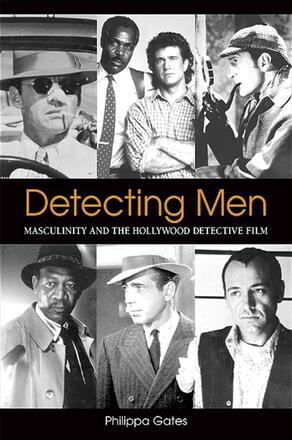
Detecting Men
Masculinity and the Hollywood Detective Film
Alternative formats available from:
Looks at how detective films have reflected and shaped our ideas about masculinity, heroism, law and order, and national identity.
Description
Detecting Men examines the history of the Hollywood detective genre and the ways that detective films have negotiated changing social attitudes toward masculinity, heroism, law enforcement, and justice. Genre film can be a site for the expression and resolution of problematic social issues, but while there have been many studies of such other male genres as war films, gangster films, and Westerns, relatively little attention has been paid to detective films beyond film noir. In this volume, Philippa Gates examines classical films of the thirties and forties as well as recent examples of the genre, including Die Hard, the Lethal Weapon films, The Usual Suspects, Seven, Devil in a Blue Dress, and Murder by Numbers, in order to explore social anxieties about masculinity and crime and Hollywood's conceptions of gender. Up until the early 1990s, Gates argues, the primary focus of the detective genre was the masculinity of the hero. However, from the mid-1990s onward, the genre has shifted to more technical portrayals of crime scene investigation, forensic science, and criminal profiling, offering a reassuring image of law enforcement in the face of violent crime. By investigating the evolution of the detective film, Gates suggests, perhaps we can detect the male.
Philippa Gates is Associate Professor of Film Studies at Wilfrid Laurier University, Ontario, and is the coeditor (with Stacy Gillis) of The Devil Himself: Villainy in Detective Fiction and Film.